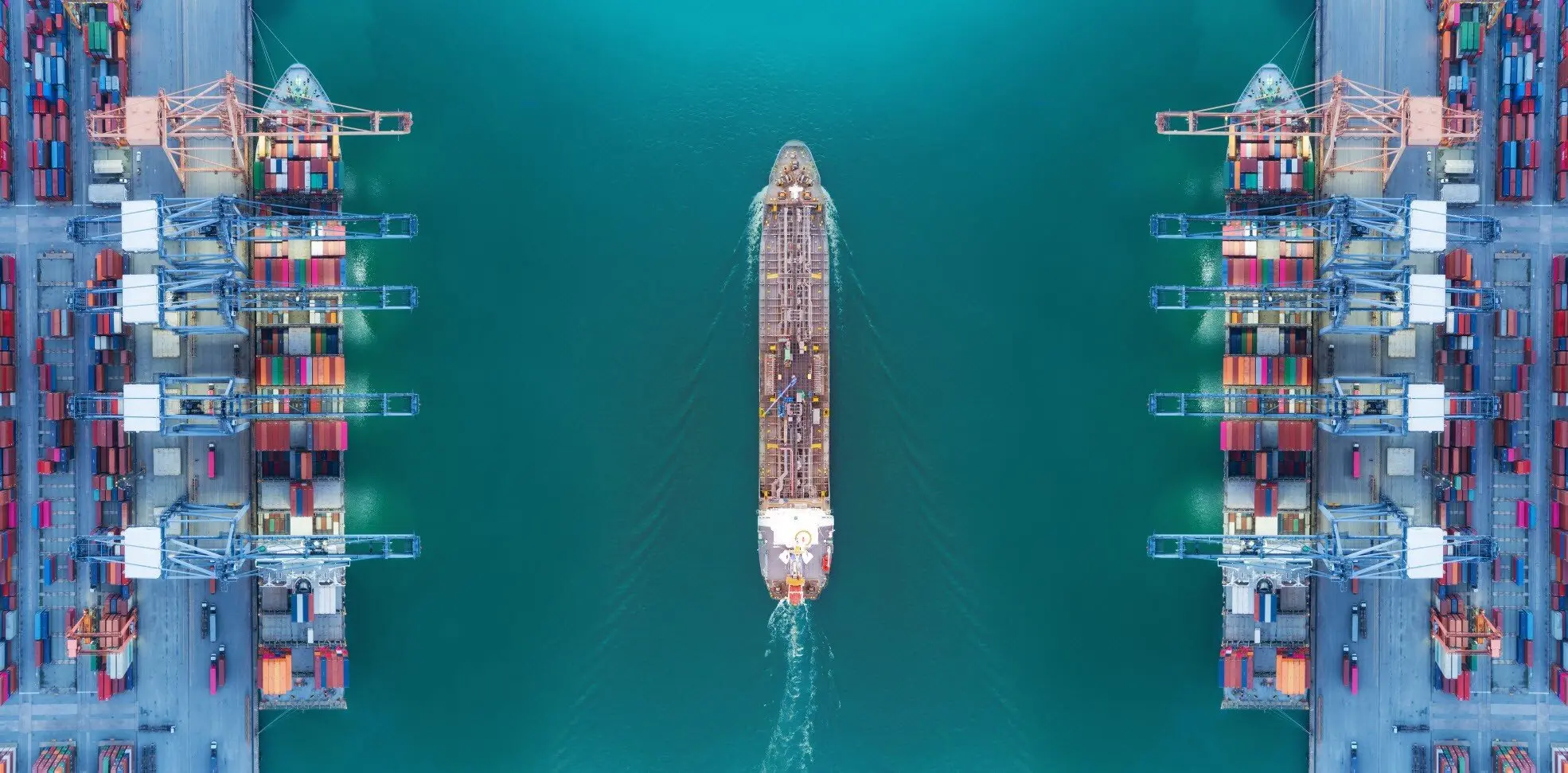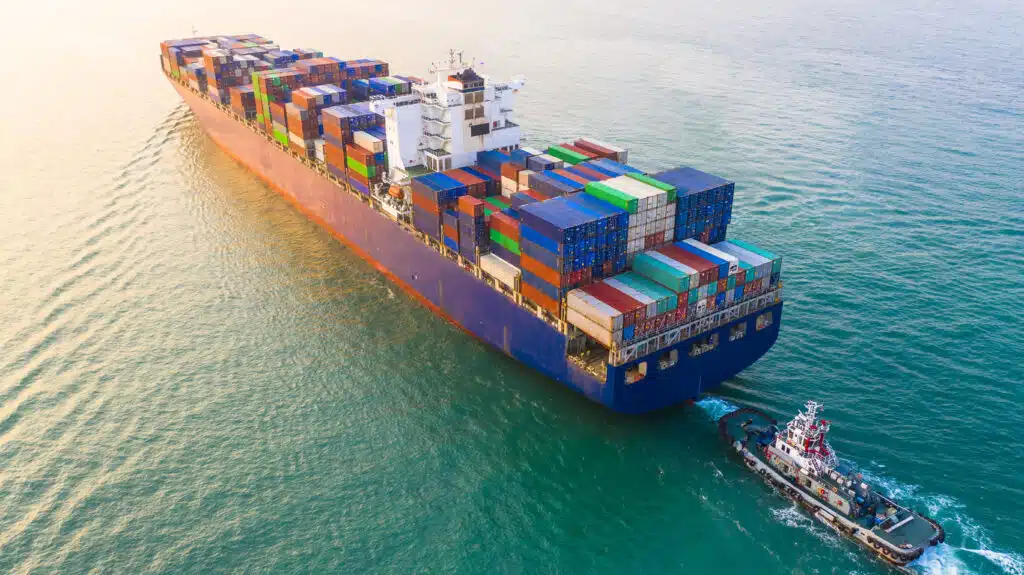

Houston-based Container Shipping Worldwide
Door to Door container service and drops for customer load. Packing, loading and transportation to port and documents.
Container Shipping by Houston’s, Texas Global Services requires a comprehensive understanding of the industry, terminology, cost factors, and best practices. Led by Diana Stinson and her professional team, we handle container shipments to and from US ports and other major ports worldwide.
The single most important factor in successful container shipping is professional packing and loading. Your container will spend a month at sea, rocking in all directions. If cargo is not packed and secured properly, it will shift, break, and arrive damaged. When shipments arrive broken, it costs you money in replacements and lost business relationships.
We specialize in professional container packing and loading services that protect your cargo throughout the entire ocean voyage. Whether you’re importing materials or exporting products internationally, we manage the complete ocean freight process so you can focus on your business.
Why Choose Texas Global Services
Responsive Communication – Available seven days a week, including weekends.
No Hidden Fees – Comprehensive quotes upfront covering ocean freight, port fees, and documentation costs.
Single Point of Contact – Work directly with Diana and her professional team throughout the entire shipping process.
Global Agent Network – Trusted freight partners in Germany, Poland, the Netherlands, Asia, and Latin America.
Container Shipping Specifications & Requirements
Standard Container Sizes
20-foot containers: Interior dimensions approximately 19’4″ long x 7’8″ wide x 7’10” high. Maximum payload capacity around 47,900 lbs.
40-foot containers: Interior dimensions approximately 39’5″ long x 7’8″ wide x 7’10” high. Maximum payload capacity around 59,000 lbs.
40-foot high cube containers: Same length and width as standard 40-foot, but 9’6″ high for taller cargo.
Weight Distribution & Loading
Weight must be distributed evenly throughout the container. Heavier items go on the bottom, lighter on top. Cargo must be secured to prevent shifting during ocean transit. Professional loading ensures proper weight distribution and prevents damage.
What You Can Ship
Most commercial goods, industrial equipment, raw materials, finished products, machinery, and properly packaged items can ship via container. Hazardous materials require special documentation and Hazmat certification (we handle this).
What Requires Special Licensing or Documentation
Certain products require export licenses, permits, or special documentation. This includes controlled goods, dual-use items, products shipped to embargoed countries, and specific regulated industries. We help identify what documentation your cargo requires.
What Cannot Ship in Standard Containers
Perishable goods without refrigerated containers, live animals, explosives without proper certification, and illegal or restricted items. Contact us if you’re unsure whether your cargo qualifies for container shipping.
How Container Shipping Works: Step by Step
Step 1: Request Your Quote
Contact us with details about your shipment: what you’re shipping, weight, dimensions, origin, destination, and timeline. We’ll provide a comprehensive quote covering ocean freight, port fees, professional packing and loading services, and documentation costs. Available 7 days a week.
Step 2: We Book Your Container
Once you approve the quote, we reserve container space with the steamship line and confirm the sailing schedule. We’ll provide you with the vessel name, departure date, estimated arrival date, and complete timeline for your shipment.
Step 3: Professional Container Packing & Loading
We coordinate with our warehouse partners to professionally pack and load your container. This includes proper weight distribution, securing cargo to prevent shifting, using appropriate packing materials, and ensuring everything is loaded safely for the month-long ocean voyage. This step protects your investment.
Step 4: Container Transport to Port Houston
We arrange drayage (container trucking) to transport your loaded container from the warehouse to or port of export terminal. The container is checked in at the terminal and staged for loading onto the vessel.
Step 5: Documentation & Customs Processing
You provide commercial invoices and packing lists. We prepare bills of lading and customs export declarations. Certificates of origin may be required depending on the destination country – we will coordinate obtaining these when needed. We work with customs to ensure all paperwork is filed correctly before the vessel departs.
Step 6: Ocean Transit & Tracking
Your container ships to the destination port. We monitor transit and keep you updated throughout the voyage. Transit times typically run 18-30 days from Houston to Asia, 14-21 days to Europe, and vary for other destinations.
Step 7: Arrival, Customs Clearance & Delivery
For imports, your container typically becomes available within a few days or once it has been released (not the same day). We coordinate with customs brokers to clear the shipment and arrange drayage to deliver your container from the port to your facility or designated location.
Frequently Asked Questions
Answered by Diana Stinson
How much does container shipping cost?
Cost depends on fuel prices, port fees, container size, destination, and services like professional packing and loading. Contact us for a detailed quote based on your specific shipment.
How long does container shipping take?
Asia to Houston: 18-30 days. Houston to Europe: 14-21 days. Transit times vary by destination and steamship line schedules.
Who is responsible for cargo insurance?
We can help you insure your shipment, we strongly recommend marine cargo insurance for every shipment.
What documents do I need?
You provide commercial invoices and packing lists. We handle bills of lading, customs declarations, and certificates of origin.
Do you handle hazardous materials?
Yes. Diana is Hazmat certified for ocean freight.
Do you only serve Houston-area businesses?
No. We’re Houston-based, but we serve clients across Texas, Louisiana, and any country that doesn’t have a trade embargo.
Why is professional container packing important?
Containers spend roughly a month at sea, constantly shifting and rocking. Improperly packed cargo will break during transit. Professional packing and loading protects your shipment and ensures everything arrives intact.
What size container do I need?
It depends on your cargo volume and weight. A 20-foot container works for smaller shipments up to about 48,000 lbs. A 40-foot container handles larger volumes up to about 59,000 lbs. We help you determine the right size based on your shipment.
What types of items does Texas Global Services not ship? We do not ship Lithium Batteries or Live Freight.
Can I ship partial loads?
Yes. If you don’t have enough cargo to fill a full container, we can arrange less-than-container load (LCL) shipping where your goods share space with other shipments.
Available 7 days a week for quotes and support!
Container Ship arriving at Port

